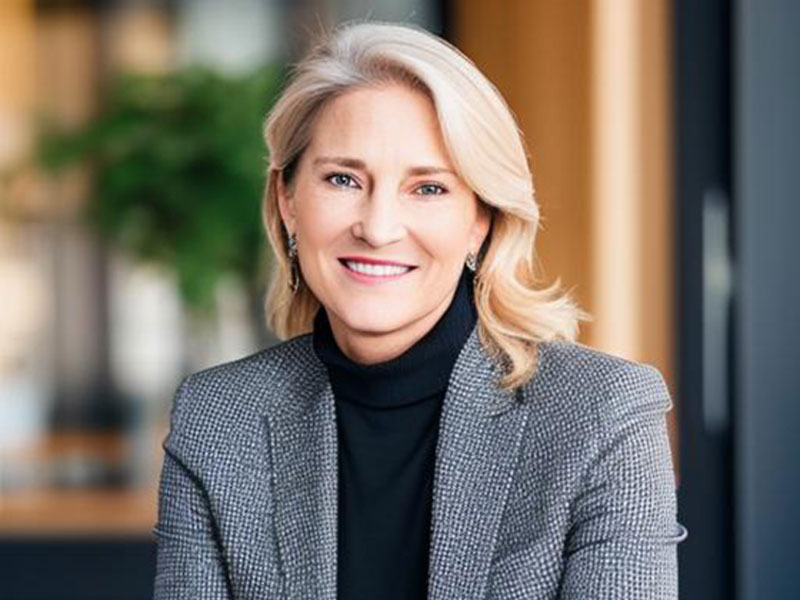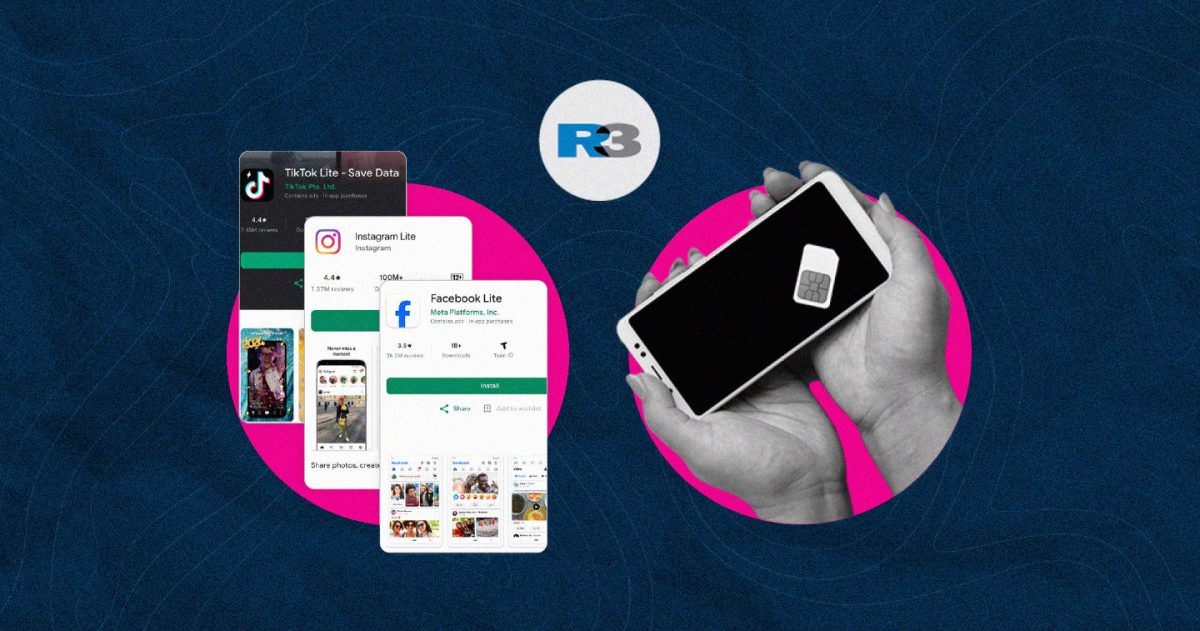The FBI will be looking at agency holding groups on a worldwide basis, not just in the United States, so Asia is very much part of the remit – meaning it’s time to get your house in order – warns Greg Paull of R3


The FBI is calling. Literally. This is no Judge Kavanaugh investigation. This is not someone checking on Russian collusion. No, they are calling on agencies here in the United States. And their focus is rebates.
According to The Wall Street Journal, last Thursday the FBI – proving it is highly capable of multi-tasking – launched a global investigation into media rebates in the advertising ecosystem.
It’s two years since the Association of National Advertisers (ANA) hired private investigative firm K2 to conduct a thorough analysis of the US media industry and practices. Their findings – based on 143 interviews across all players – were that media agencies and their holding groups are consistently engaging in ‘non-transparent’ activities. Only one (unnamed) of the six holding groups participated in the survey and most of the agencies tweeted ‘witch hunt’ or something similar.
Once upon a time, this was a simple industry. If a company paid $100 for media, agencies were entitled to a 15% commission. Hence, on behalf of the marketer, it would act as its ‘agent’ to produce advertising and manage the whole process. Ironically, we lived in these simple times not realising this was in fact a ‘rebate’ from the media from the beginning.
Creative and media unbundled, media owners got squeezed for revenue. Programmatic, barter, DSP’s, digital, social and more all emerged. And here we are now in this mulligatawny soup of a situation.
So what’s happened in the last week? The immediate impact on the industry has been the stock prices of the holding groups. Some have dropped as much as 3.4% in recent days.
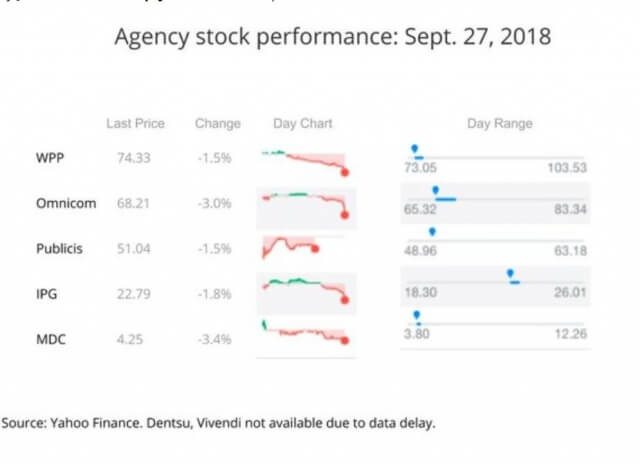
Brian Wieser of Pivotal Research, the Neil DeGrasse Tyson of the advertising industry, mentioned in his report last Friday that “the presence of an FBI probe will likely add to the general mistrust that many marketers have towards their agencies until the probe is resolved. It also will represent a source of headline risk for investors”. The groups and the marketers have yet to speak up directly on the topic, but with 25,000 of them swelling around New York now for Advertising Week, it’s certainly a topic for water cooler discussion.
So how do rebates work?
The K2 report highlighted a complex ecosystem of financial payments which, if proven, would be cause for criminal action. In one scenario highlighted below, funds flow not from the agency of record, but through an affiliate entity, foreign or domestic. The report highlighted the use of separate agreements, which are not only not shared with marketers, but often not even with the agency of record.
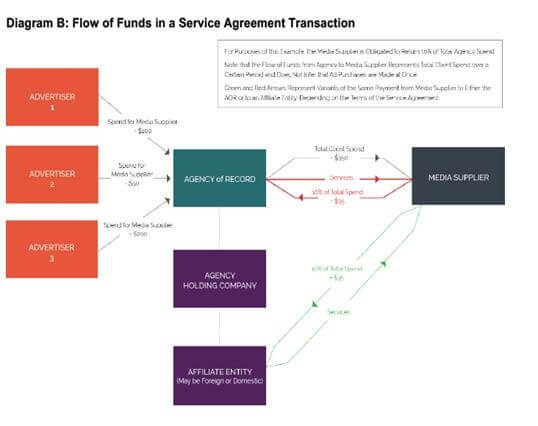
So what does this mean for me in Asia?
Unlike the K2 report, the FBI’s remit for this work is global. They will be looking at agency holding groups on a worldwide basis – so Asia is very much part of their remit. The last time the FBI ran a global white collar investigation such as this was for a little football group otherwise known as FIFA. That investigation was led by the then head of the FBI, a certain Robert Mueller.
The reality is that in Asia, rebates are actually far more prevalent than in the US. The World Federation of Advertisers (WFA) recently produced a ‘Rebate Heat Map’ based on member interviews, to identify which regions these were more common.
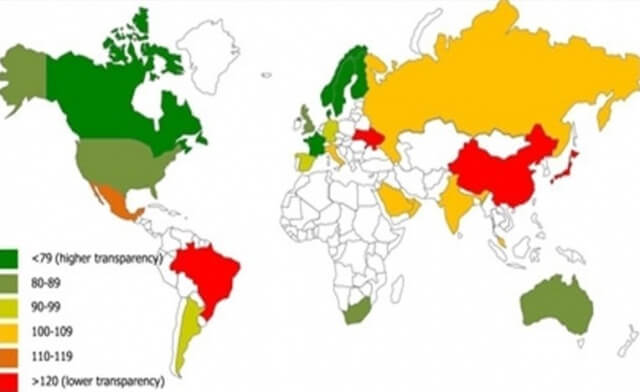
What should Asian marketers do now?
Change your contract. Most contracts in Asia are not clear enough on these issues and many are only at the agency of record level
Next, conduct an audit. Without an independent financial audit, a marketer can never sleep soundly at night knowing they are being treated appropriately
Then pay agencies appropriately. If you really believe a media agency can serve as your independent strategic partner on a 1% or 2% commission, you are being naïve. Get transparent and pay fees for the talent you need.
What should Asian agencies do?
Come clean. We recently conducted a major audit of a global marketer in Asia. The CFO blew the whistle to share confidential information. Now that it’s in the open, we can all have sensible discussions on the topic.
You must also train procurement. Procurement will always be the beachhead of your future relationships. Make sure they are involved, engaged and aware.
Finally, think bigger. Marketers don’t care about media costs as much as business results. Help them achieve a bigger outcome, they will reward you for it.

